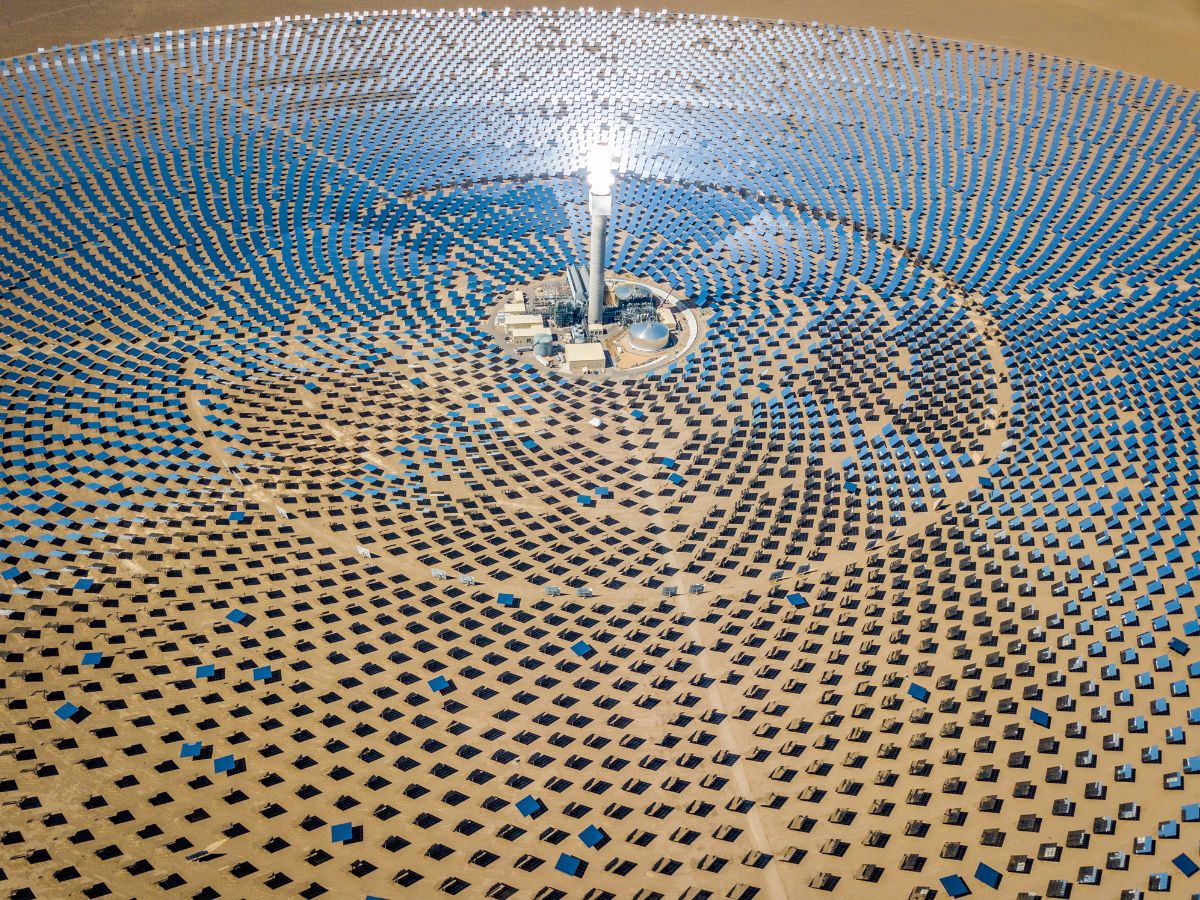Page Contents
Definition: Solar energy finance is the process of securing funds for the development and operation of solar power projects.
Capital Structure: It includes a mix of equity, debt, and incentives to support project viability and growth.
Objective: To expand solar energy adoption, reducing environmental impact and fostering sustainable development.
What is a solar farm project and how it can be financed
A solar project is a construction project that involves setting up solar panels to generate electricity. These projects can be installed on a rooftop or a dedicated site.
Solar projects come in different sizes and configurations to meet the needs of different businesses and consumers. In recent years, the cost of photovoltaic (PV) solar panels has significantly decreased, making solar projects more affordable. (1)(2)(3)
Project finance models for solar projects
Project financing is the process of funding a construction project where the lender assesses the viability of the project and its potential returns.
The lender provides the funds required to execute the project, and it is repaid based on a predefined schedule. Solar project financing is a type of project finance that focuses on financing solar power projects.
Solar finance options
There are several financing options for solar projects, and selecting the right one depends on the financing needs of the project.
Some of the popular options include lease financing, debt financing, power purchase agreements (PPAs), and third-party ownership financing.
Different financing options for solar projects
Lease financing structure for solar energy systems
Lease financing involves leasing the solar energy system from a lessor who owns it. The lessee, or the company that uses the solar system, then pays the lessor a fixed monthly fee for the use of the system.
The lease period is usually long-term, typically around 20 years. At the end of the lease period, the lessee may have the option to purchase the system outright.
Third-party ownership financing structure
Third-Party Ownership Financing involves having a third party finance the installation and maintenance of the solar energy system.
The third party then sells the electricity produced by the system to the host customer, typically at a lower rate, thus ensuring long-term cash flow stability for both parties.
Debt financing for solar projects
Debt financing is a common financing option for solar projects. It involves borrowing funds from a lender, and the borrower pays interest on the borrowed funds.
The borrower repays the principal over a predetermined period; this period can range from a few years to several decades.
Debt financing is ideal for businesses with strong credit ratings as they can obtain loans at lower interest rates.
What is a Power Purchase Agreement (PPA) and how it works
Overview of Power Purchase Agreements
A Power Purchase Agreement (PPA) is an agreement between a seller and a buyer where the seller generates electricity and sells it to the buyer at a predetermined rate.
PPAs are commonly used in the solar industry to finance solar power projects. PPAs are long-term agreements typically spanning 10 to 25 years, ensuring long-term cash flow benefits for both parties.(4)(5)
Financing a solar power project through a PPA
PPAs help solar companies finance their projects without relying on their balance sheet.
A PPA typically allows the solar company to sell the electricity generated by the solar installation to the buyer (typically a commercial or industrial facility) at a lower rate than what the buyer would pay for traditional electricity (from a utility company).
Even if the buyer is an electric utility, it allows a solar project development company to sell the electricity it produces under a long-term contract.
Cash flow benefits of PPAs
The cash flow benefits of PPAs are significant for both the seller and buyer. For the seller, they are guaranteed a fixed rate for the electricity they produce, and this ensures cash flow stability.
For the buyer, they receive electricity at a lower cost than what they would pay for traditional electricity. It is a win-win situation for both parties.
Furthermore, the use of PPAs, for instance in the United States, is even further incentivized by a number of government programs, which grant tax credits or other subsidies for the installation of solar PV systems.
Benefits of solar power for renewable energy
Advantages of solar energy
Solar energy offers several advantages over traditional energy sources like coal or natural gas.
Solar installations have significantly lower emission levels than those of traditional power plants. Solar power systems require minimal maintenance, and they have an extended life span, reducing replacement costs.
Solar power is also scalable, meaning that the size of the system can be customized to meet the energy needs of the business or individual.
How solar power contributes to renewable energy goals
Solar power is a crucial component of renewable energy. It is considered to be one of the cleanest and most readily available sources of renewable energy financed.
The adoption of solar power can help reduce reliance on traditional power sources, reduce emissions, and mitigate the impact of global warming.
Understanding the economics of solar energy
The economics of solar energy have significantly improved in recent years. The cost of a solar PV system has decreased significantly, and with the incentives offered by the government, businesses and individuals can now finance a solar project at a lower cost than ever before.
Moreover, the cost of using grid electricity has been on the rise. As a result, solar power has become an increasingly attractive option for businesses.

Key considerations for the construction of a solar power project
Identifying solar resources and site selection
Identifying solar resources is the first step in constructing a solar power project.
Solar power projects require ample sunlight, and choosing a site that receives maximum sunlight will ensure the optimal performance of the solar system.
The orientation and tilt of the solar panels are also important considerations that affect the energy output of the system.
Design and engineering of a solar power project
The design and engineering of a solar power project are critical to ensure optimal energy output. Solar projects require a team of professionals including engineers, builders, and architects, to execute the project.
The design and engineering of solar projects involve considering multiple factors like the climate, the orientation and tilt of the solar panels, and the electrical components of the installation.
Project management and construction of a solar power project
The project management and construction stage involves executing the plan and building the solar power project.
At this stage, it is essential to ensure that the project is completed within the budget and schedule parameters.
The construction of the project involves assembling the solar PV system, installing the electrical components, and connecting the solar system to the electrical grid.
Conclusion
The adoption of clean energy like solar power is on the rise, and it is important to consider various financing options available.
With a sound financing strategy in place, businesses can finance their solar projects and save on electricity costs in the long term. Solar power offers long term sustainability, durability and significant environmental benefits, making it one of the best clean energy options for the future.
REFERENCES:
- Jacob Marsh, Solar farms: What are they and how much do they cost?, retrieved from https://www.energysage.com/community-solar/solar-farms-start-one/
- What is a Solar Farm?, retrieved from https://www.renewableenergyworld.com/storage/what-is-a-solar-farm/#gref
- Cultivating a sustainable future, retrieved from https://www.repsol.com/en/energy-and-the-future/future-of-the-world/solar-farm/index.cshtml
- Solar Energy Industries Association, Solar Power Purchase Agreements, retrieved from https://www.seia.org/research-resources/solar-power-purchase-agreements
- United States Environmental protection Agency, Solar Power Purchase Agreements, rertieved from https://www.epa.gov/green-power-markets/solar-power-purchase-agreements

